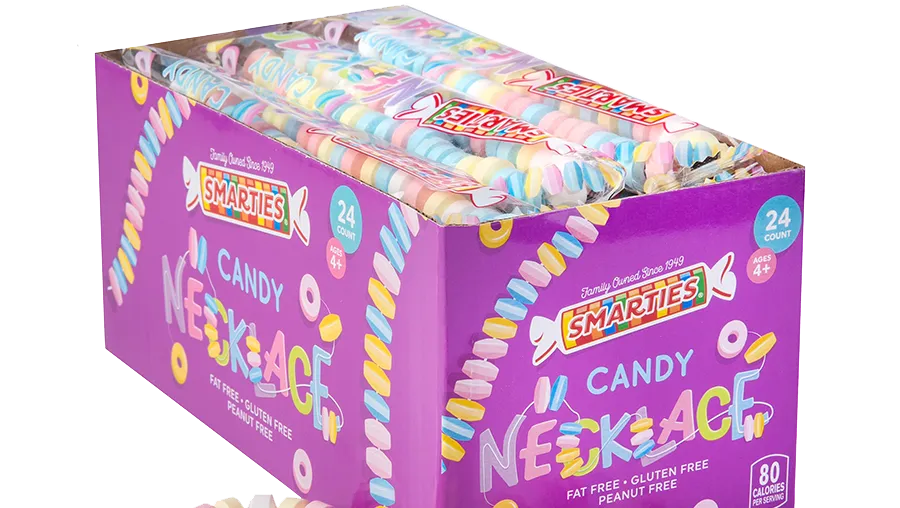[ad_1]
Most confectionery companies stock multiple brands in their portfolios to diversify and boost sales. Smarties, known for its namesake candy, has found atypical success for its 75 years in business by betting big on one item — and winning.
“It’s a risk, absolutely,” focusing on one thing, Liz Dee, a fifth-generation candy maker and co-owner of the company, said in an interview.
For most companies, “it’s about diversity in a portfolio. For us, if something went awry with the brand from a consumer perspective, it’s not like this is only 20% of our family of brands. This is our brand.”
Smarties Candy Company was founded in 1949 by Edward Dee, Liz’s grandfather.
Today, Liz, her sister Jessica and cousin Sarah serve as co-presidents. The family-owned business produces and sells more than 1 billion candy rolls per year, with its two plants typically running 24 hours a day, five days a week. They can barely keep up with demand.
Smarties has broadened the candy’s reach with a lollipop, a sour version, a gummy, necklace and giant and mega Smarties.

Liz Dee, co-owner of Smarties Candy Company
Permission granted by Smarties Candy Company
It’s a strategy that has paid off. Sales for the first nine months of its current fiscal year are “growing single digits,” and Smarties is on track to post another annual record.
Smarties’ success has not gone unnoticed by other candy makers, Dee said. The company gets “reached out to very regularly” by people who want to work with it or purchase the brand to add to its portfolio.
“You don’t just stay privately held like this by accident,” she said. “We are very committed to maintaining this family tradition. It’s very meaningful to us. We’re not interested in quarterly profits. We’re interested in a legacy of sweetness.”
Dee attributed Smarties’ longevity to nostalgia and the brand’s ability to provide a reliable product to the consumer. The 40-year-old executive admitted she has a sweet tooth, but that like the customers who purchase Smarties, she loves the product and would continue to consume “even if I went to the next, latest” hot product.
Smarties is working hard not to show its age and maintain its relevance in the market.
The company runs a program called Smarties U that allows students to receive the candy for good grades — a nod to the brand’s name that encourages people to learn.
This year, it allowed consumers with allergies to “trade in” the candies they couldn’t safely eat from trick-or-treating for Smarties that are free from most known allergens. Smarties also gives away candy on social media and collaborates with other companies and brands for joint giveaways, including Cheez-Its, Pringles.

Optional Caption
Permission granted by Smarties Candy Company
Smarties has benefited recently from market forces outside of its control. Volatility in cocoa and high sugar costs have forced large confection giants to raise their prices. Even though Smarties has increased how much consumers pay, the product continues to have a lower price point than other candies in the market, Dee said. Each Smarties roll has 15 tablets, which allows the treat to last longer — a boon to cash-strapped consumers.
“It has allowed us to continue to compete in a space that’s highly competitive,” she said. “We’ve got to stay on the shelf. We got to stay relevant. And you know, being a high-value candy has allowed for us to do that.”
Dee’s grandfather came to the U.S. by boat from England in 1949 and landed just a few miles from Union Township, New Jersey, Smarties current headquarters. He regularly came to the office, including the day he died in 2019 at the age of 95. With Smarties firmly embedded as a family business, Dee insists the company thrives because of its family connections — even if holiday gatherings can sometimes morph into another day at the office.
“Thanksgiving can sometimes feel like a board meeting,” Dee confessed. “People ask me, what’s it like working in a family business? And I say it kind of depends on your family … For us, it works, and we love it.”
[ad_2]
Source link



